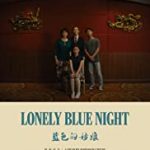One of the most hotly debated screenwriting mandates is that you have only ten pages to grab your reader. As a script consultant who works with writers on both high concept pieces and low budget indies I’ve found this one directive causes much frustration. So, is there truth in it?
In short, yes.
You’ve heard it before beleaguered development executives, producers, managers, agents with a huge stack of material in front of them that needs to be read. With so many scripts to get through it’s all too easy to stop reading if a piece doesn’t grab you immediately. Some will hang in there to see if the script ultimately works but most won’t.
Before you judge them too harshly it’s important to realize that it’s not just an overload of material and limited time that causes them to stop reading. In my experience having read several thousand screenplays ten pages is often a very good indication of whether or not the piece has potential.
In addition all executives read with a very specific intention in mind and they know exactly what they are looking for in genre, budget range, castability and level of marketability. In general, especially if the submission is from a new writer, they don’t need to read the entire script to know if it’s not for them. This is a bitter truth. But better to accept it and learn to work with it than fight the system.
Here’s what the first 10 pages tell a reader:
1. Format. Right away it’s easy to see if a writer is familiar with standard screenplay format. Proper font size, spacing, slug lines, scene and character headings. Even how a script is bound can signal how well versed the writer may be. Binders, cerlox, bull clips or anything other than brads to bind a script are a clue that the writer may not be up to speed on standard procedures for submitting a script. While this isn’t always an indication that the script isn’t going to work it’s a sign that the writer may be unfamiliar with the other elements a script needs to succeed.
If you’re unsure about proper format pick up David Trottier’s excellent book The Screenwriter’s Bible.
2. Who the protagonist is. The first ten pages have to establish who our story is going to be about and there should be no doubt as to who this is. For example even though True Grit is about three people (Rooster Cogburn, Laboeuf and Mattie Ross) it’s clear that this is Mattie’s (Hailee Steinfeld) story.
3. What the protagonist’s flaw is. The protagonist’s Achilles’ heel also needs to be established here. We become emotionally invested in what our protagonist needs to heal or overcome over the course of the story. If we don’t know what it is within the first ten pages we run the risk of not grabbing the reader’s interest in the emotional through line of the story. In The King’s Speech we know Albert, Duke of York (Colin Firth), is dealing with a debilitating speech impediment and are immediately invested in him resolving this and being able to speak in public. Burying the protagonist’s problem or flaw somewhere in the middle of the second act will significantly undermine your ability to emotionally engage your reader.
4. Hook or premise. It’s essential that by page 10 we know generally what the story is about and where it’s heading. This is established by setting up the main complication or problem our hero is going to be facing (usually referred to as the inciting incident). While we don’t want to know exactly how this is all going unfold we’ll have a good sense of main idea that’s driving the piece. In The Fighter it’s clear that this is going to be a story about Micky Ward’s (Mark Wahlberg) struggle to come out from behind his brother Dickie Eklund’s (Christian Bale) shadow and get a chance at a boxing title.
5. Genre. The first ten pages need to establish the main genre of the piece. While Black Swan is a hybrid of genres it’s still primarily a psychological thriller. True Grit may have comedic elements but there’s no doubt it’s a western. Newer writers in particular need to be very clear about what genre their story falls into so that the reader knows what kind of piece they are reading within the first few pages.
6. Craft. Ten pages is more than enough to establish whether or not the writer has a good sense of the craft of writing and has an original, distinct voice.
You can see here that ten pages packs a lot of punch. Now maybe the premise isn’t quite clear by page ten but the writing is brilliant or perhaps the conflict is a little unfocused but the protagonist is fully engaging and unique. This might be enough to keep the reader hooked and get you another 10 pages but the line in the sand is the first act (pages 25-30). At this point the reader needs to know who the protagonist is, what major flaw they are dealing with, what obstacle is standing in the way of them achieving their goal and what kind of a movie this is.
If you can do all this in the first ten pages you’ve just increased the likelihood of your piece being read through to the final page. The executive reading your script may ultimately decide that it’s not for them, that’s an occupational hazard, but it shows them you have a solid understanding of screenwriting and opens the door for your next submission. So hook your reader in the first ten pages and you’ll have a much better chance of building the relationships you need to maintain a long-term career in Hollywood.




